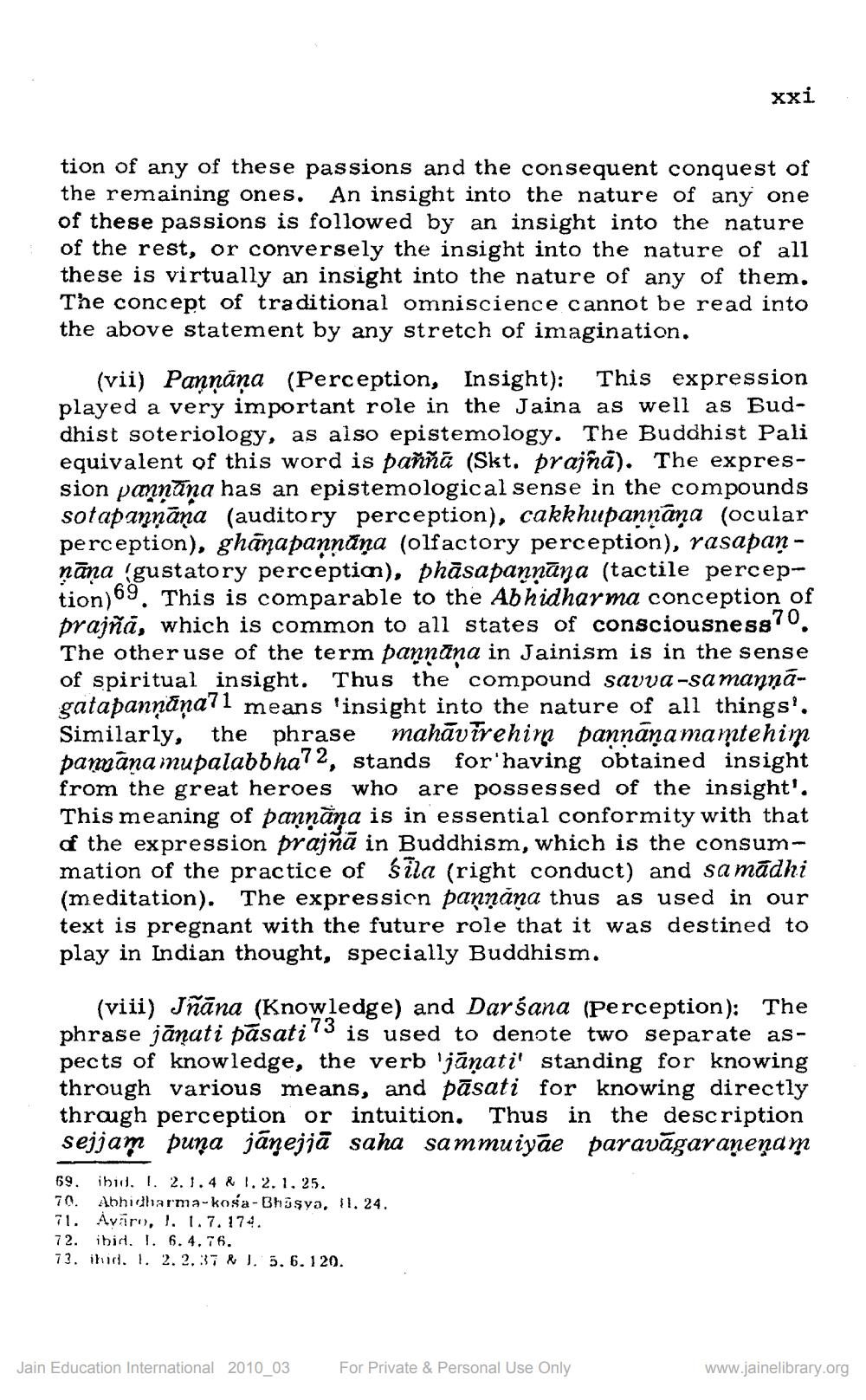________________
xxi
tion of any of these passions and the consequent conquest of the remaining ones. An insight into the nature of any one of these passions is followed by an insight into the nature of the rest, or conversely the insight into the nature of all these is virtually an insight into the nature of any of them. The concept of traditional omniscience cannot be read into the above statement by any stretch of imagination.
(vii) Pannāņa (Perception, Insight): This expression played a very important role in the Jaina as well as buddhist soteriology, as also epistemology. The Buddhist Pali equivalent of this word is paññā (Skt. prajna). The expression pannāna has an epistemological sense in the compounds sotapanņāna (auditory perception), cakkhupannāna (ocular perception), ghānapannāņa (olfactory perception), rasapanņāna (gustatory perception), phāsapannāna (tactile perception)69. This is comparable to the Abhidharma conception of prajñā, which is common to all states of consciousnes870. The other use of the term pannāna in Jainism is in the sense of spiritual insight. Thus the compound savva-samannagatapannānall means 'insight into the nature of all things'. Similarly, the phrase mahāvirehim pannānamamtehim pamana inupalabbha72, stands for'having obtained insight from the great heroes who are possessed of the insight'. This meaning of pannāna is in essential conformity with that of the expression prajñā in Buddhism, which is the consummation of the practice of sila (right conduct) and samadhi (meditation). The expression pannāna thus as used in our text is pregnant with the future role that it was destined to play in Indian thought, specially Buddhism.
(viii) Jnāna (Knowledge) and Darsana (Perception): The phrase jānati pásati 3 is used to denote two separate aspects of knowledge, the verb 'jänati' standing for knowing through various means, and pāsati for knowing directly through perception or intuition. Thus in the description sejjam puņa jānejjā saha sammuiyãe paravāgaraneņam 69. ibid. I. 2.1.4 & 1.2.1. 25. 70. Abhidharma-kosa-Bhisya, 11. 24. 71. Avaro, 1. 1. 7. 174. 72. ibid. 1. 6.4.76. 73. ihint. 1. 2. 2.37 J. 5. 6.120.
Jain Education International 2010_03
For Private & Personal Use Only
www.jainelibrary.org




